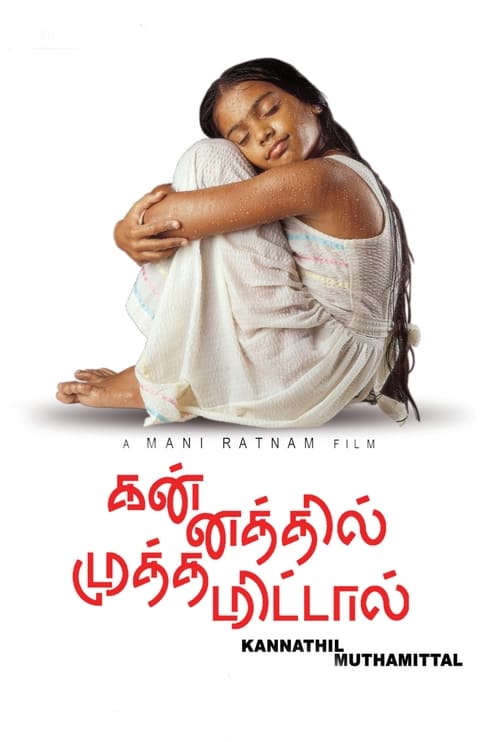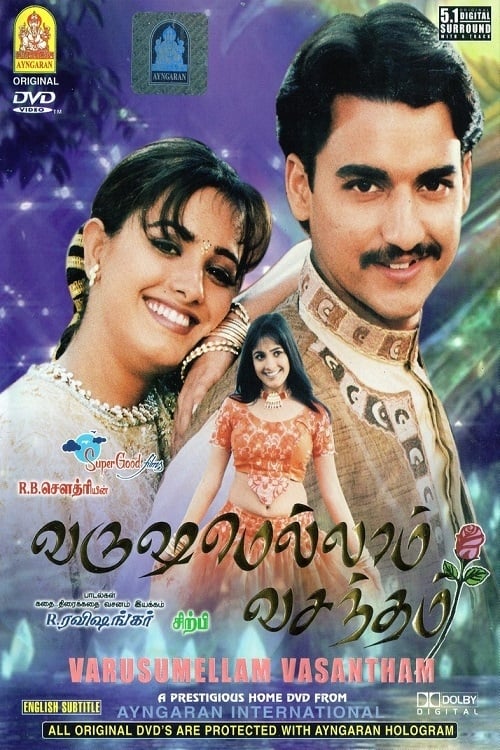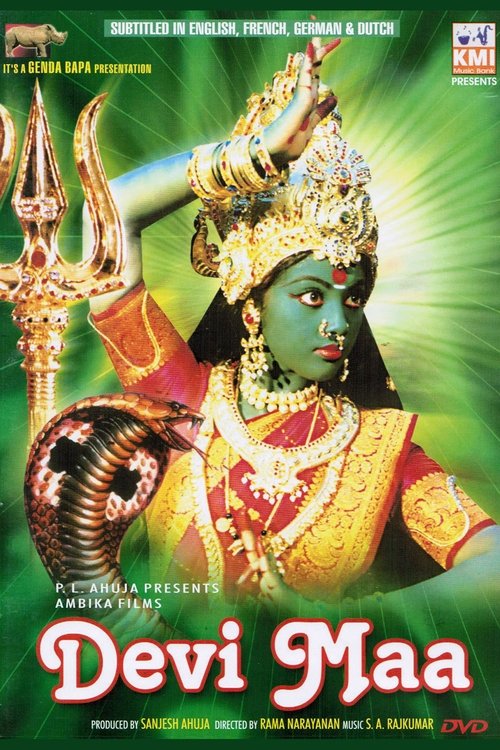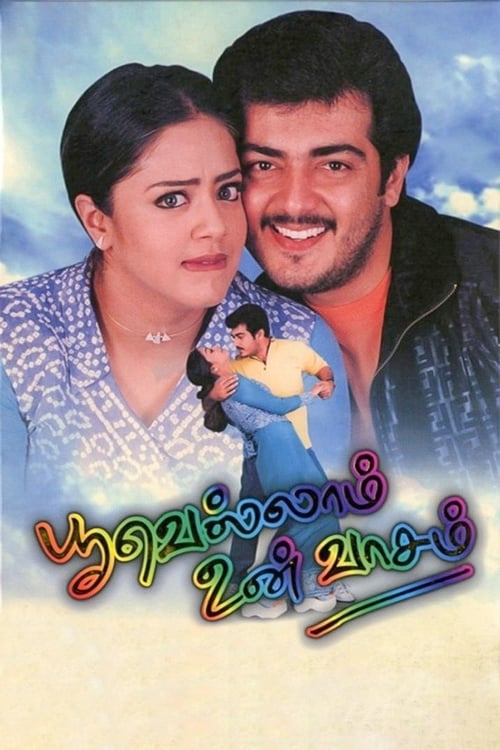
Ask Your Own Question
What is the plot?
Sorry, we aren't able to watch and write up a full detailed plot yet. Check back in a few days.
What is the ending?
In the ending of "Kannathil Muthamittal," the story culminates in a poignant reunion between the protagonist, Amudha, and her biological mother, who is a Tamil rebel in Sri Lanka. After a series of emotional confrontations and realizations, Amudha's family faces the harsh realities of war and the impact it has on their lives. The film concludes with a sense of unresolved tension, as the characters grapple with their identities and the consequences of their choices.
As the film approaches its conclusion, Amudha, a young girl adopted by a couple in India, embarks on a journey to find her biological mother, who is living in war-torn Sri Lanka. The emotional weight of her quest is palpable, as she is driven by a deep yearning to understand her roots and the circumstances that led to her adoption.
Scene by scene, the narrative unfolds with Amudha, accompanied by her adoptive parents, embarking on a journey fraught with uncertainty. They travel to Sri Lanka, where the atmosphere is thick with tension and the scars of civil conflict are evident. The landscape is marked by destruction, and the sounds of distant gunfire serve as a constant reminder of the war that rages around them.
Upon reaching the rebel camp, Amudha's adoptive parents are filled with apprehension, yet they support her desire to meet her biological mother. The camp is a stark contrast to the life Amudha has known; it is chaotic, filled with young fighters and the remnants of a life interrupted by violence. The emotional stakes rise as Amudha finally meets her mother, who is initially hesitant and conflicted about their reunion.
In this pivotal moment, the audience witnesses the raw emotions of both women. Amudha's mother, a fierce and determined woman, is torn between her love for her daughter and her commitment to the cause she has fought for. The reunion is fraught with tension, as Amudha grapples with the reality of her mother's life choices and the impact of war on their family.
As the story progresses, the conflict escalates. The camp is attacked, and chaos ensues. Amudha's adoptive parents, who have been supportive throughout the journey, find themselves in a perilous situation. The urgency of the moment forces them to confront the reality of their choices and the dangers that come with seeking the truth.
In the climax, Amudha's mother makes a heart-wrenching decision to protect her daughter. She realizes that the life she has chosen is not one that can provide Amudha with the safety and love she deserves. In a moment of sacrifice, she urges Amudha to leave with her adoptive parents, emphasizing that her daughter must have a chance at a normal life, away from the violence that has defined her own existence.
The film concludes with Amudha and her adoptive parents escaping the chaos, leaving behind the camp and her mother. The emotional weight of the farewell is heavy, as Amudha looks back, torn between her love for her biological mother and the life she has known. The final scenes capture the lingering sense of loss and the complexities of identity, as Amudha grapples with her dual heritage and the implications of her mother's sacrifice.
As the credits roll, the audience is left with a profound sense of the characters' fates. Amudha returns to her life in India, forever changed by her journey. Her adoptive parents, while relieved to have her safe, are acutely aware of the emotional scars that remain. Amudha's biological mother, on the other hand, is left in a world of conflict, embodying the struggles of countless individuals caught in the crossfire of war. The film closes on a note of ambiguity, highlighting the enduring impact of choices made in the name of love and survival.
Is there a post-credit scene?
Kannathil Muthamittal does not have a post-credit scene. The film concludes with a poignant ending that encapsulates the emotional journey of the characters, particularly focusing on the themes of identity, belonging, and the impact of war on families. The narrative wraps up as the characters reflect on their experiences, leaving the audience with a sense of closure regarding the story's central conflicts and emotional arcs.
What motivates Amudha to search for her biological mother?
Amudha, a young girl adopted by a couple in Tamil Nadu, is driven by a deep-seated curiosity and a longing to understand her roots. As she learns about her biological mother, who is a Sri Lankan Tamil, her desire to connect with her heritage intensifies. This quest is fueled by her emotional need for identity and belonging, which is further complicated by the backdrop of the Sri Lankan civil war.
How does the relationship between Amudha's adoptive parents evolve throughout the film?
Amudha's adoptive parents, Thiruchelvan and Indra, initially support her quest to find her biological mother, but as the story unfolds, they grapple with their own fears and insecurities. Thiruchelvan, a compassionate and understanding father, struggles with the implications of Amudha's search, while Indra experiences a mix of anxiety and protectiveness. Their relationship is tested as they confront the realities of Amudha's origins and the potential impact on their family.
What challenges does Amudha face during her journey to find her mother?
Amudha encounters numerous challenges during her journey, including the harsh realities of the civil war in Sri Lanka. She faces emotional turmoil as she learns about the violence and suffering that her biological mother endured. Additionally, the journey exposes her to the complexities of identity and belonging, as she navigates the cultural differences between her life in India and the war-torn landscape of Sri Lanka.
What role does the character of the biological mother, Muthulakshmi, play in Amudha's story?
Muthulakshmi, Amudha's biological mother, is a pivotal character whose past and present shape Amudha's understanding of her identity. Her experiences as a refugee and a mother caught in the conflict highlight the emotional weight of Amudha's search. Muthulakshmi's resilience and sacrifices resonate deeply with Amudha, ultimately influencing her perception of love, family, and the harsh realities of life.
How does the film depict the impact of the Sri Lankan civil war on families?
The film poignantly illustrates the devastating impact of the Sri Lankan civil war on families through the experiences of Amudha and her biological mother. It showcases the separation, loss, and trauma that war inflicts on individuals, particularly women and children. The narrative weaves together personal stories of survival and the longing for reunion, emphasizing the broader consequences of conflict on familial bonds and individual identities.
Is this family friendly?
"Kannathil Muthamittal," directed by Mani Ratnam, is a poignant film that explores themes of identity, family, and the impact of war. While it is a deeply moving story, there are several aspects that may be considered objectionable or upsetting for children or sensitive viewers:
-
War and Violence: The film is set against the backdrop of the Sri Lankan civil war, and there are scenes depicting the harsh realities of conflict, including violence and its aftermath. This may be distressing for younger audiences.
-
Separation and Loss: The emotional weight of separation from family members and the longing for connection is a central theme. Scenes that depict the pain of loss and the search for a parent can be particularly intense.
-
Emotional Turmoil: Characters experience significant emotional struggles, including fear, confusion, and sorrow. The portrayal of these feelings may be heavy for sensitive viewers.
-
Death and Grief: There are references to death and the impact it has on families, which can be upsetting, especially for children who may not fully understand these concepts.
-
Cultural and Political Tensions: The film addresses complex political issues and cultural tensions, which may be difficult for younger viewers to grasp and could lead to confusion or distress.
Overall, while "Kannathil Muthamittal" is a beautifully crafted film with important messages, its themes and content may require parental guidance for younger audiences.




































